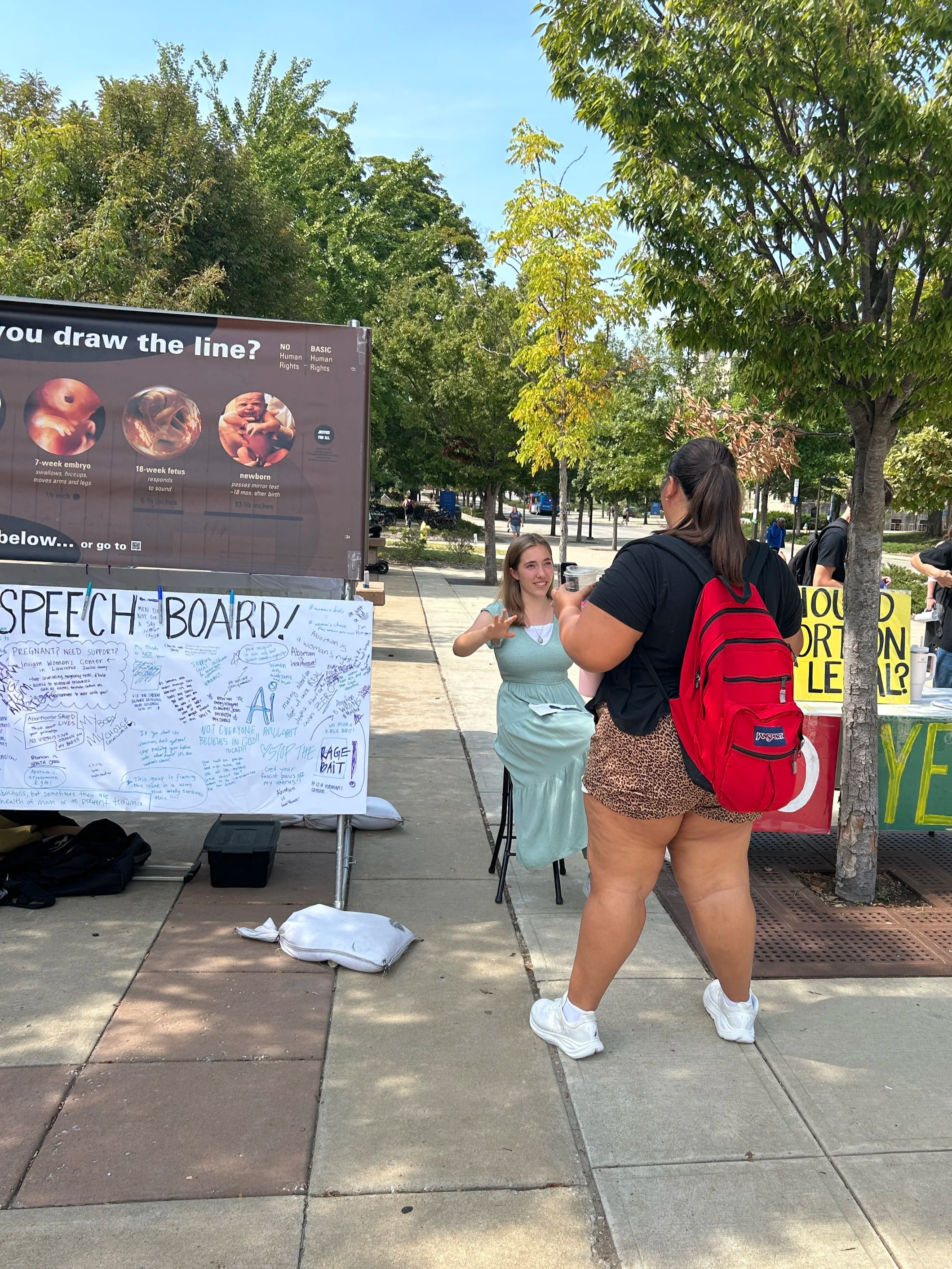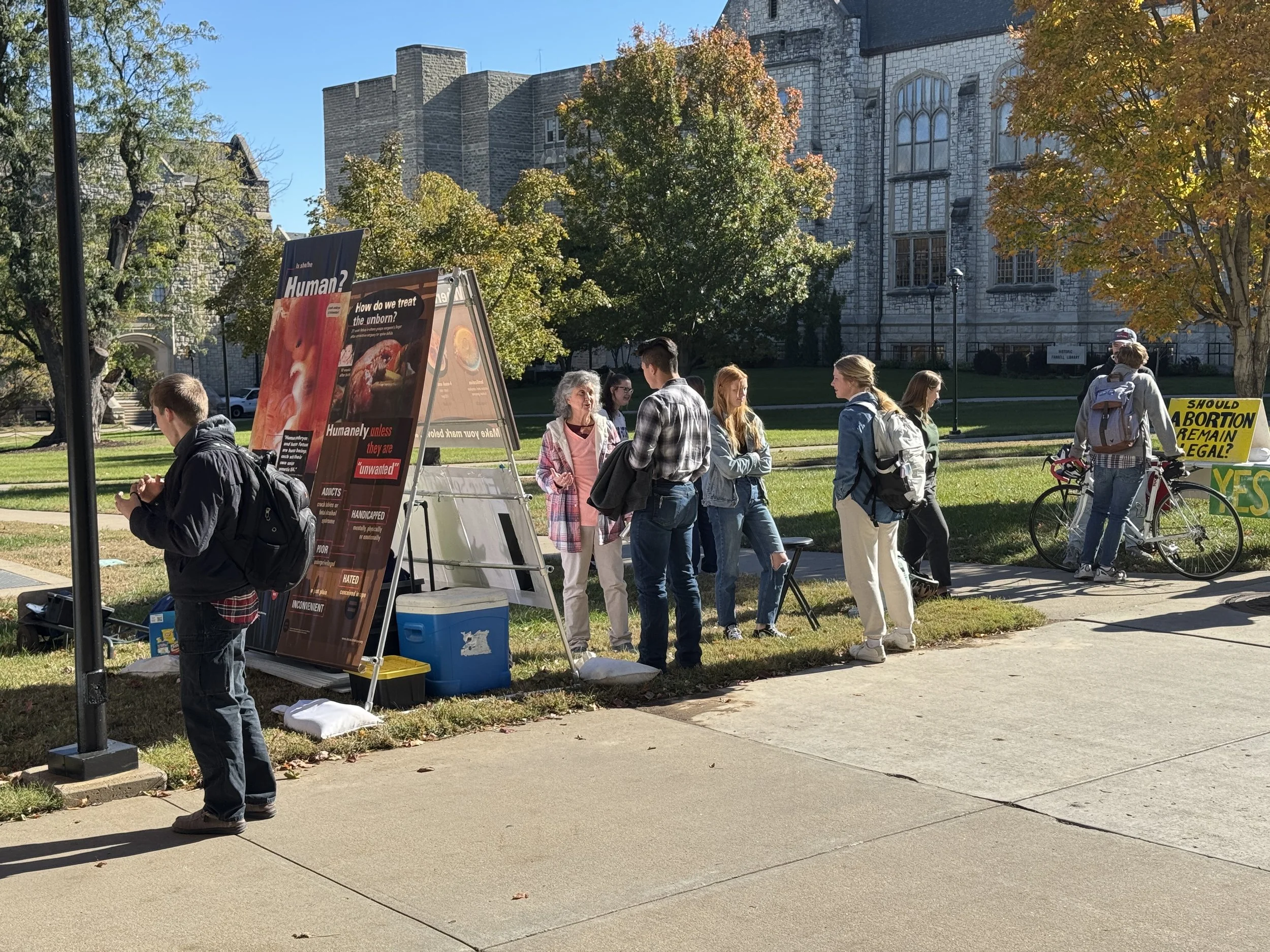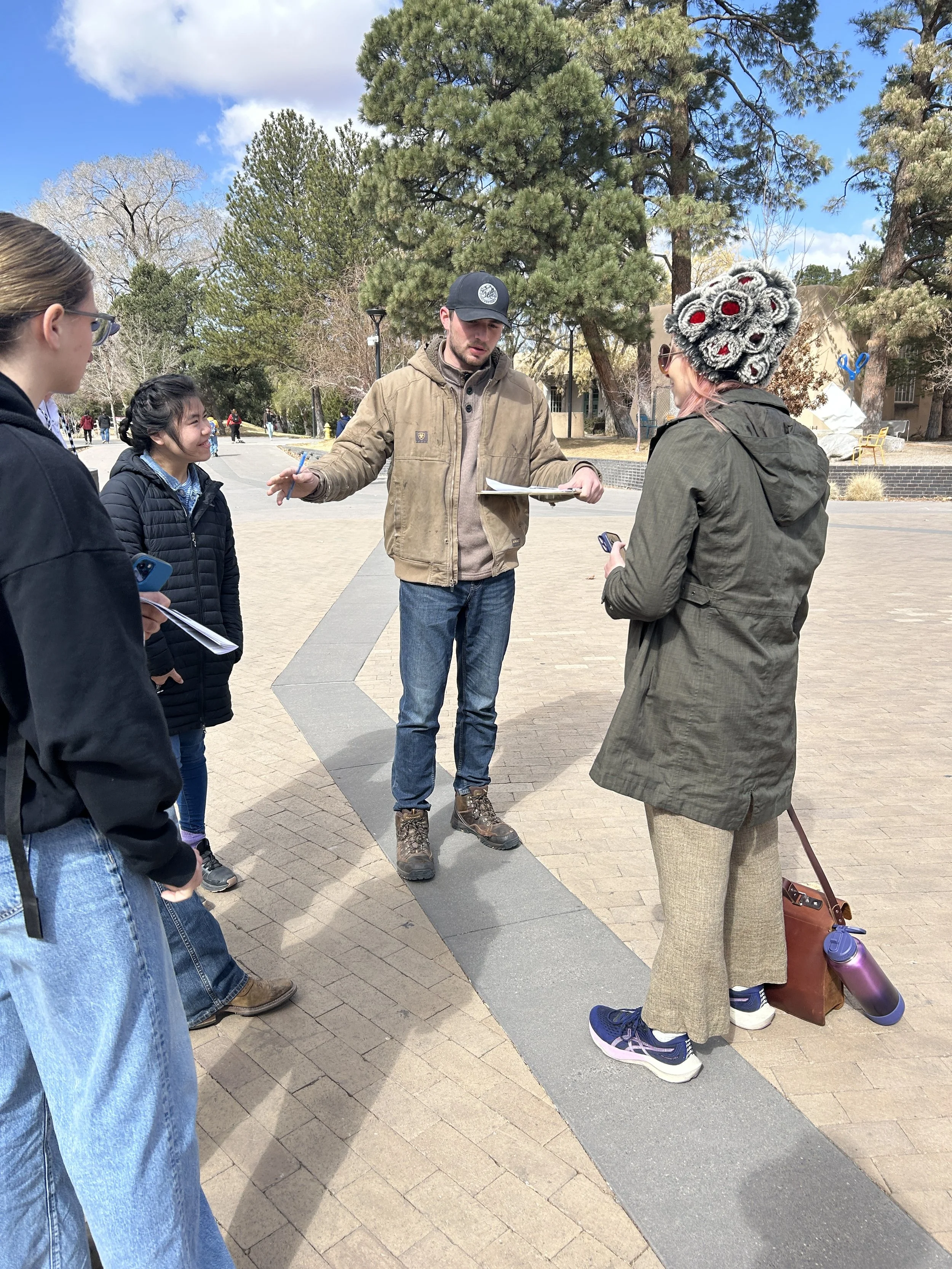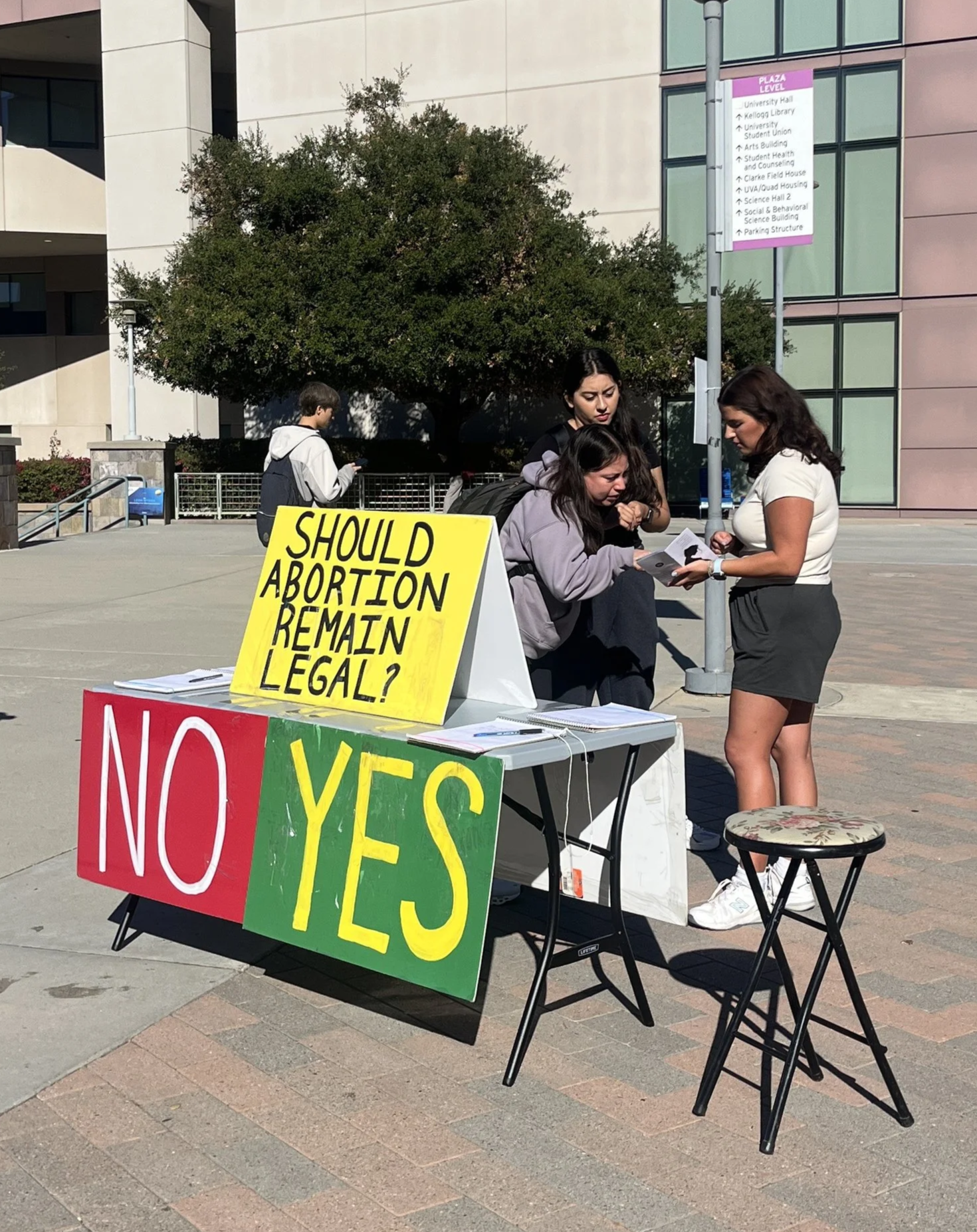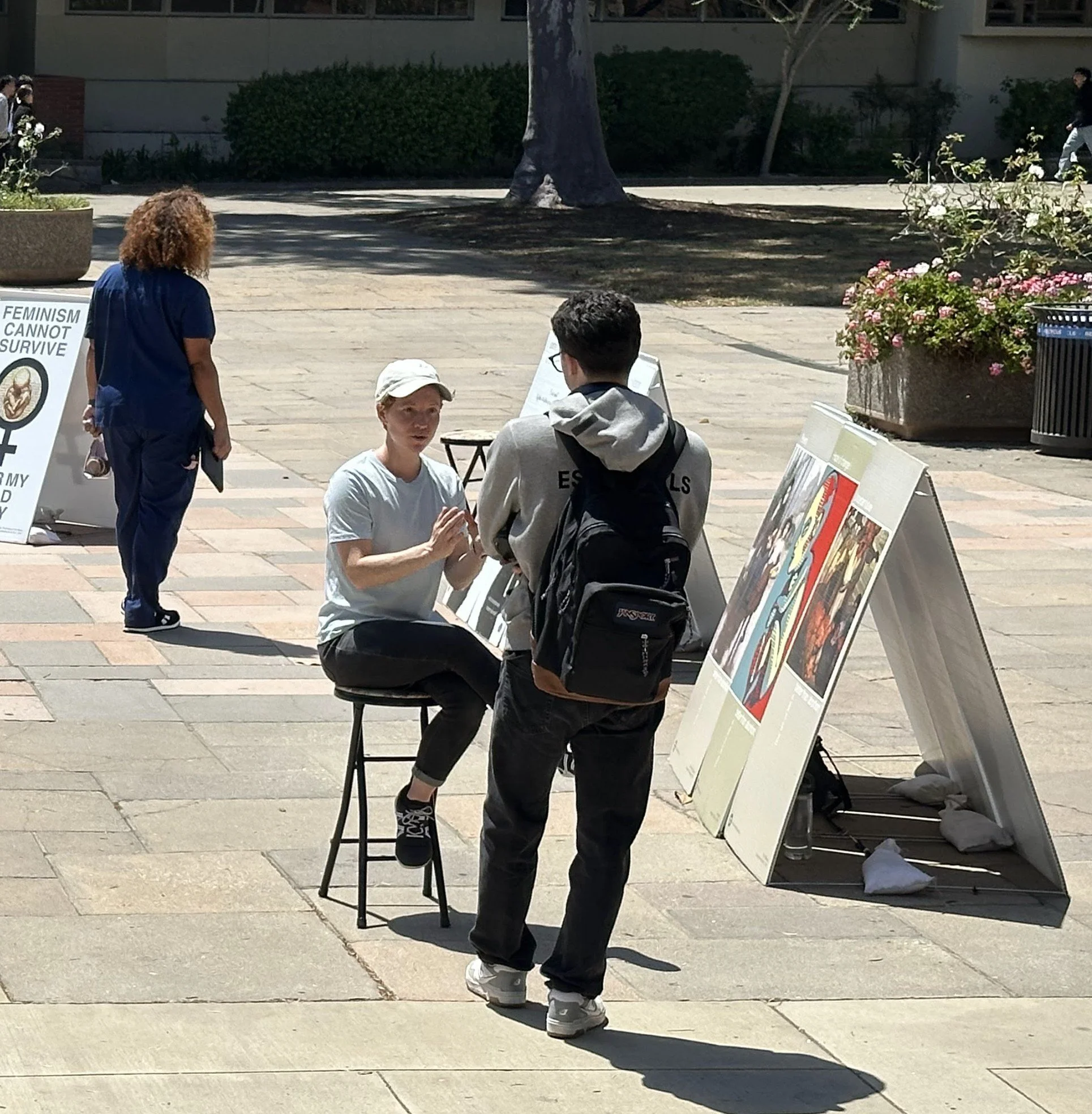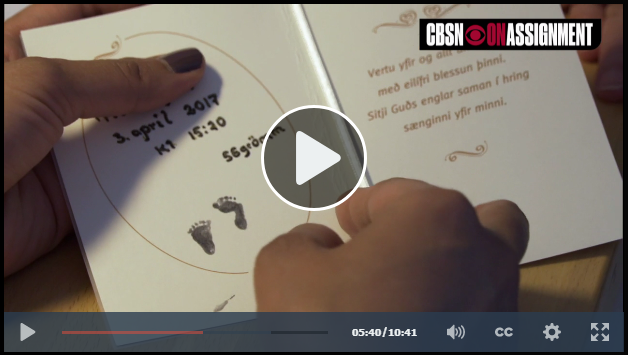Outreach at UCLA, May 2025
Many people who say they are against abortion believe it should be legal in the case of sexual assault or if the child won’t live long outside the womb due to an illness or fetal deformity. When I was at UCLA in May, I spoke to “Jake,” a Christian who held this perspective on abortion.
Our conversation went something like this:
Talking to “Jake” at UCLA
Rebekah: I think abortion in the case of rape is a really difficult topic. I understand emotionally why people want to be pro-choice in this case. If a woman feels like abortion will help her heal, it’s hard to tell her she can’t access it. You mentioned earlier that you are against abortion in most other cases. Why are you against abortion in general?
Jake: I’m against it because it kills a human being.
Rebekah: I am too. If you agree the unborn are human beings made in the image of God, and if there is a human being involved in both a consensual pregnancy and a pregnancy that resulted from rape, how does your faith inform your view on that?
He was quiet for a moment as he thought about this question. When I felt like it would be helpful to share more, I continued:
Rebekah: If we believe the unborn are human beings made in the image of God from conception, then they should be protected no matter how they came into existence. I understand that this is really hard emotionally though. Here’s something that might help. Imagine I show you two images of an ultrasound, and I ask you which child was conceived in rape? You wouldn’t be able to tell. Both are human even though one came into existence through something that was really awful.
Jake: I think you’re changing my thoughts on this.
I then asked him if he thought abortion should be allowed in the case of fetal deformity since that had come up earlier. He said yes.
Rebekah: That’s also really hard. If I got pregnant and found that my baby was not going to live very long, I think that would emotionally wreck me. I think it would help to think about it this way: Imagine that I am pregnant, and my child has some illness or deformity that makes it unlikely that she will live past a year, but I don’t find out about this until my baby is born. Do you think I should be able to kill my child after she’s born because she won’t live very long?
Jake was quiet again. I could tell he was really thinking. Then he said:
Jake: Yes, I agree you cannot kill your child after she’s born.
Rebekah: So if that human in the womb is equally human to the born child, then we should protect both of them. It makes sense that these are really hard cases emotionally. As Christians, we know that human beings are made in the image of God so our value stays constant despite the pain and suffering we experience.
Jake: Thank you for this conversation. You’re changing my thoughts on this, but I do need to think about it more.
In nearly every conversation I have about abortion, I confront the question of whether abortion should be legal in these hard situations. They don’t typically end with someone telling me they are changing their thoughts on the issue, and that makes sense because these questions can hold so much pain and trauma for some people.
When I was at the University of Nebraska in Kearney in early May, I talked to a student who was against abortion in general because he believed it killed a valuable human, but he thought there should be an exception in the case of rape. I asked him, “Since you are generally opposed to abortion because you think it kills a human being, how do you reconcile that view with allowing someone to kill a human in the case of rape?” He told me it was personal. He has a childhood friend who experienced assault and got pregnant as a result. She chose to keep her child. He told me he can see the pain in her eyes when she looks at her child.
Most of my conversations about this aspect of the abortion issue are like the one with the Nebraska student in that they bring up some of the most traumatic things a person can experience. Women who have experienced assault matter. Women who are pregnant and get a fatal diagnosis for their child matter. While we find common ground and sympathize with people in these situations, we must also help them widen their circle of compassion and concern to include the unborn child who is too often forgotten and ignored in these situations. We need to love them and protect them as well.

